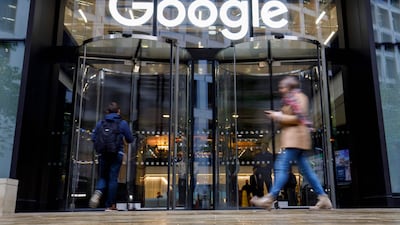Google has released a new open artificial intelligence model Gemma, created with the same research and technology used to develop its flagship Gemini models.
The Alphabet-owned company has released two open models, Gemma 2B and 7B, that aim to assist developers and researchers in “building AI responsibly”.
While Gemini is a closed AI model that competes directly with Microsoft-backed OpenAI’s ChatGPT, the more lightweight Gemma, developed by Google DeepMind, is expected to work well for modest tasks such as basic chatbots or summarisation jobs.
“We have a long history of supporting responsible open source and science, which can drive rapid research progress, so we are proud to release Gemma … a set of lightweight open models, best-in-class for their size, inspired by the same tech used for Gemini,” Demis Hassabis, founder and chief executive of DeepMind that was acquired by Google in 2014, wrote on X.
“Gemma models share technical and infrastructure components with Gemini, our largest and most capable AI model widely available today,” said Tris Warkentin, director at Google DeepMind, and Jeanine Banks, vice president and general manager at Google’s Developer X team.
“[They] are capable of running directly on a developer laptop or desktop computer … surpass significantly larger models on key benchmarks while adhering to our rigorous standards for safe and responsible outputs.”
When will Gemma be available?
Google said Gemma is available globally from Wednesday. It also comes with a new generative AI toolkit that offers guidance and essential tools for creating safer applications.
Developers can access it through various platforms such as Kaggle, Hugging Face, Nvidia’s NeMo and Google’s Vertex AI.
Founded in 2016, French-American company Hugging Face is a collaboration platform for the global machine-learning community. It develops tools for building applications using AI and machine learning.
In January, it joined forces with Google Cloud to help the development of generative AI and machine learning.
“It's great to see Google reinforcing its commitment to open-source AI, and we are excited to fully support the launch with comprehensive integration in Hugging Face,” the company said in a statement.
What is Gemini?
Launched in December, Gemini is the first AI model to beat human experts on MMLU (Massive Multitask Language Understanding), one of the widely used methods to test the knowledge and problem-solving abilities of AI.
It was integrated with Google’s generative AI tool Bard and it can comprehend diverse tasks and generate code based on different inputs – aimed to provide problem-solving capabilities.
How safe is Gemma?
Google said Gemma is designed with its “AI principles at the forefront”. The company used automated techniques to filter out certain personal information and other sensitive data from training sets.
“To understand and reduce the risk … we conducted robust evaluations including manual red-teaming, automated adversarial testing, and assessments of model capabilities for dangerous activities,” Google said.
Free credits for developers
Gemma is built for the open community of developers and researchers powering AI innovation.
To attract more users, the company is also offering $300 in credits for first-time Google Cloud users.
Researchers can also apply for Google Cloud credits of up to $500,000 to accelerate their projects.
How big is the Gen AI market?
Investors have put more than $4.2 billion into generative AI start-ups in 2021 and 2022 through 215 deals after interest surged in 2019, recent data from CB Insights showed.
Globally, AI investments are projected to hit $200 billion by 2025 and could possibly have a bigger impact on gross domestic product, Goldman Sachs Economic Research said in a report in August.
Meanwhile, in Saudi Arabia, the Arab world's biggest economy, the generative AI market is expected to surpass $1 trillion by 2030, growing at a compound annual rate of more than a quarter, from nearly $220 million in 2023, data from Statista shows.
The technology was catapulted into the spotlight with ChatGPT, which was launched by OpenAI in December 2022. It is a programme that comes up with humanlike responses to prompts in seconds, based on information publicly available on the internet. However, it has also raised concerns about how it is being used and its accuracy.
In September, the Abu Dhabi government-supported research centre, the Technology Innovation Institute, launched Falcon 180B – an advanced version of its flagship language model – to boost generative AI in the region.
In November, cloud company Amazon Web Services launched a generative AI tool specifically for businesses.


